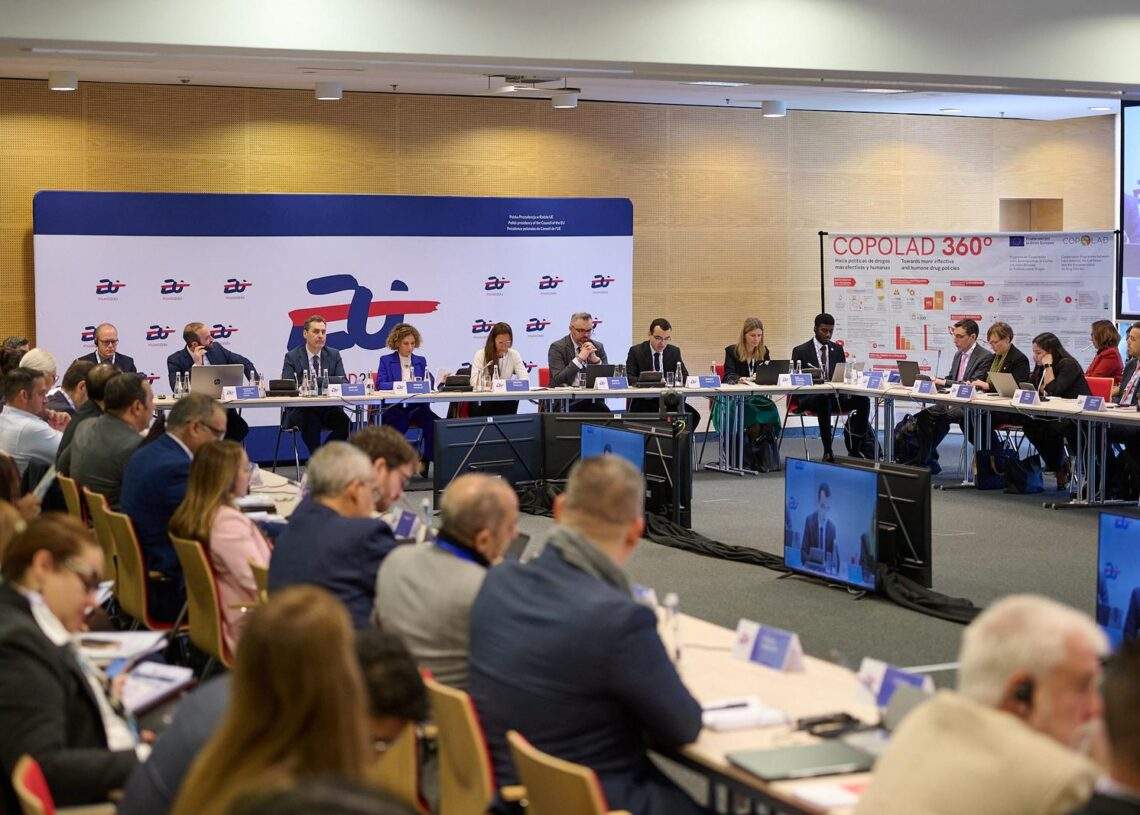More than 150 international drug experts from 40 countries convened in Warsaw (Poland) on 6 and 7 May for the meeting organised by COPOLAD III, an EU-funded programme that works to promote more humane and effective public policies on drugs through collaboration between the European Union (EU), Latin America and the Caribbean (LAC).
The main objective of the COPOLAD Annual Meeting is to encourage a collective reflection of EU and LAC public administrations, based on the results obtained by the Programme in the last four years. Only through shared strategies, as was pointed out in several interventions, can we address the main challenges of current drug policies in a coordinated manner.
In a changing geopolitical context, where there is no longer one continent that consumes and another that produces, drug trafficking and demand continue to grow. The number of people with problematic drug use has risen steadily, reaching 292 million in 2022, according to data from the United Nations Office on Drugs and Crime (UNODC), an increase of 20% in 10 years. In addition, the emergence of new synthetic opioids, combined with record supply and demand for other substances, has exacerbated the effects of this global problem, leading to an increase in social, political and public health disruptions.
Shared strategies and collective preparation
With the claim ‘A common challenge, a shared strategy’, the COPOLAD Annual Meeting made possible the definition of this new framework and strengthened the bi-regional space for dialogue on drug policies, seeking convergence and harmonization of the proposed solutions. “We need to move forward in collective preparation, because as long as some of us are not prepared, the others will not be either,” argued Alexis Goosdeel, executive director of the European Drugs Agency (EUDA).
The Warsaw meeting also served as a space for accountability and exchange of experiences among COPOLAD’s allies and partner countries in LAC and the EU. The Program has achieved 85% compliance with its goals, which demonstrates its maturing process. In the different panels, COPOLAD’s added value was highlighted with its holistic approach, which encompasses the areas of supply and demand reduction, is based on peer learning and carries out an holistic, multi-actor and territorial approach to the drug phenomenon. The importance given by the Program to the gender and human rights transversal approach was also highlighted.
“We need to move forward in collective preparation, because as long as some of us are not prepared, the others will not be either,” argued Alexis Goosdeel, executive director of the European Drugs Agency (EUDA)
In the interventions, the LAC countries presented the progress made together with the EU on key issues such as environment and drugs, territorial and community policy, risk and harm reduction, social restitution of assets seized from drug trafficking or the development of National Drug Observatories and other tools necessary for decision-making based on empirical evidence. Regional advances in criminal alternatives for minor drug offenses or in the judicial approach to investigations of women trafficking associated with drug trafficking were also presented.
Multilateral and respectful responses to diversity
As a conclusion, those attending the meeting agreed that the new challenges posed by a changing and global drug landscape require multilateral responses, respectful with diversity and, at the same time, unified on both sides of the Atlantic.
This approach is in line with the European Drug Strategy 2021-2025 and the La Paz Political Declaration, emanating from the 2024 meeting of the EU-CELAC Coordination and Cooperation Mechanism on Drugs.
As Borja Díaz Rivillas, director of COPOLAD III, pointed out, “La Paz Declaration represented a milestone in the formulation of shared strategies on drugs and that’s why the efforts that the Program is making for its implementation are so important”.






